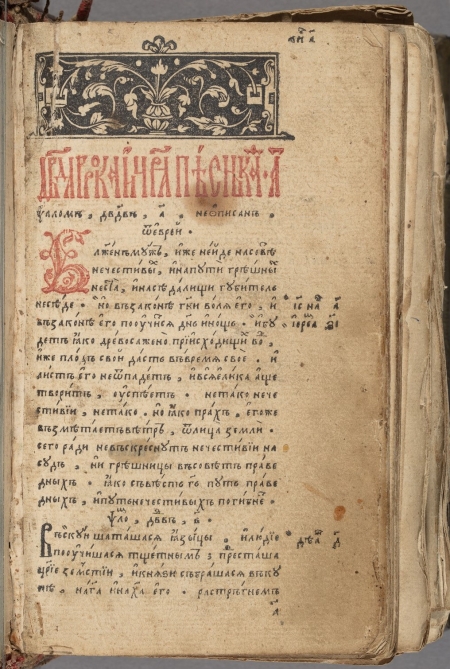
Home to both the Ukrainian Research Institute and the Davis Center for Russian and Eurasian studies, Harvard University is a nucleus for research related to Ukraine, especially for topics like language, literature, history, anthropology, archaeology, art history, economics, politics, and sociology. This research is aided by Harvard's rich and diverse holdings of Ukrainian resources and collections.
Emigré collections

Harvard’s Ukraine collections are largely built on donations by and relating to twentieth-century émigrés. These collections span many disciplines and are located at repositories throughout the Harvard Library and Museums. The passion for Ukraine among many of these émigrés led them to collect work about and from their homeland, such as Bohdan and Neonila’s collection of thousands of maps of Ukraine and a collection of émigré poetry gathered in New York by Konstantyn Schynkar. As some émigrés continued their work as artists, others pursued political goals for Ukraine from afar, as documented in the papers of the military leader and businessman Kalenik Lissiuk and those of Jan Tokarzewski-Karaszewicz, relating to the government in exile.
The library has particularly strong holdings among Ukrainian émigré artists including the papers of poets Bohdan Krawciw, Vasyl’ Barka and Igor’ Pototskii; set and costume designers’ Boris Aronson and Alexandra Exter, and the opera singer Mary Lesawyer.
Ukrainian History

The Harvard Library’s collections document in detail Ukraine’s history as a territory in Eastern Europe—with materials that originated in places such as the Russian empire, the Polish-Lithuanian Commonwealth, the Austro-Hungarian Empire, and the Ukrainian National Republic among others. A few highlights include land charters signed by the Cossack hetman Ivan Mazepa in the 17th century, a pivotal announcement of abdication as hetman from the Ukrainian noble Pavlo Skoropads’kyi, a small collection of glass plate negatives depicting the periphery of the fin-de-siecle Russian empire including of Kiev, and 16 collections of post-Soviet political and election ephemera.
For those interested in book history, don’t miss the first bible printed in Cyrillic known as the “Ostrih Bible” printed by Eastern Europe’s Gutenberg, Ivan Fedorov. The library holds a number of books printed by Fedorov in L’viv (today, part of western Ukraine) that provide a rich picture of book production in 16th-century Eastern Europe.
Ukraine Today & Digital Collections
The Harvard Library has digitized many of its Ukraine collections, such as the Czuczman collection of currency and 1950s cultural posters, and supported their use in collaborative projects such as the Digital Atlas of Ukraine and Ukraine Crisis Archive at Archive-It. As part of a major digitization project, the library has also digitized fifteen collections of post-soviet Ukraine political and electoral ephemera from 1999 through today. Harvard library users also have access to extensive digital collections related to the Euromaidan and the Ukraine crisis provided by Eastview.
Accessing These Materials
Materials relating to Ukraine and Ukrainians are held in libraries throughout campus. Here are some hints to help you find them:
- Search in HOLLIS. When you find an item there, the record will list its location with the phrase "Available at ..."
- Links to materials available online will be in the HOLLIS record.
- Many of these archival collections are located at the Ukrainian Research Institute, who has a list of their 62 collections.
- Contact us with any questions!